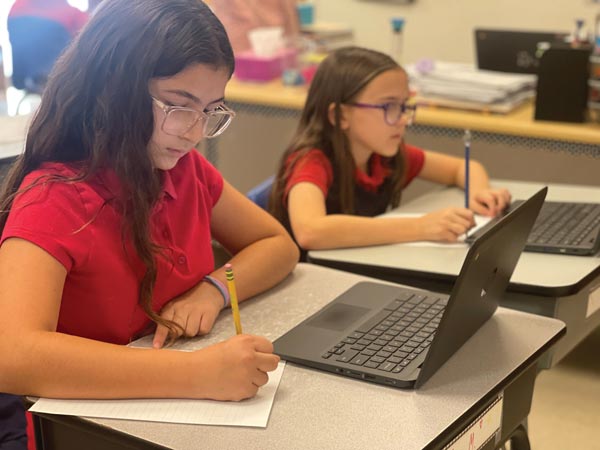For all the benefits and pitfalls of living in the information age, the temptation and accessibility to plagiarize reigns at the top. With a world of knowledge at their fingertips, students can research topics like past generations could not. They can watch experts on videos, listen to interviews on podcasts, and read article upon article.
They can also claim ideas as their own, copy and paste words, and even find websites based on specific curriculum that post answers to entire assignments and tests.
Using technology wisely includes academic honesty that does not partake in cheating, plagiarism, or stealing ideas. As students grow and build upon their habits, now is the most important time to address integrity.
Beyond monitoring your students’ computer time and class assignments, look out for these indicators that technology and academic honesty might be a real struggle.
PROCRASTINATION
Students who regularly put off work find themselves in a bind. With incomplete assignments or failing to study for a test, it is tempting to find a quick solution just a click away. In a world of instant gratification, putting in the work to earn a grade seems laborious. Remember, a shoddy attempt to reword information still counts as plagiarism.
Coming up with original ideas, writing drafts and proofreading, and internalizing information takes time. Nothing of deep and lasting value comes quickly.
PERFECTION
Students who want to perform may decide that their best effort would go a lot further if they adopted someone else’s words. Without making the ideas and argument their own, adopting other words really amounts to stealing. Many times, students do not realize that plagiarism is stealing when they’re solely focused on performing well in class.
PEOPLE PLEASING
It is still academic dishonesty if your student is the one supplying the answers. When students want so badly to be accepted or make friends, providing other students with answers or completed assignments can seem like a helpful solution. Of course, it is not helpful in the long run, and it is cheating.
If you find yourself in a great learning opportunity with your student — to focus on technology and academic honesty — take these following steps to hone in.
HELP PLAN
Buy a student planner. Set alarms for study time and play time. Review homework. The only cure for procrastination is action, but that needs to ultimately fall on your student’s shoulders. Investigate what internal motivations will not only help your student to complete assignments but to also learn the material and take ownership over the process.
ALLOW NATURAL CONSEQUENCES
If your child doesn’t complete an assignment or study for a test, a poor grade is the appropriate consequence. Let her know you would prefer that over a dishonest A. If perfection and performance drive her, remind her that she won’t master every skill, enjoy every class, or impress every teacher. Working hard and making herself proud matters most.
PRIZE CHARACTER
It can be easy for students and parents to get wrapped up in GPA numbers. But a grade your student earned on a test won’t matter in 20 years; the habits they formed in the process will. Doing the right thing — whether that’s avoiding the temptation to quickly copy and paste a few paragraphs from the internet or not e-mailing homework answers to a friend — will pay off more than the quick fix of cheating.
If you’re looking for a school that understands the challenges students face — like technology and academic honesty — check us out. Self Development Academy is recognized as one of the best K-8 charter schools nationwide.
Self Development Academy has campuses in Phoenix and Mesa. For more information, visit selfdevelopmentacademy.com or call (480) 641-2640.




